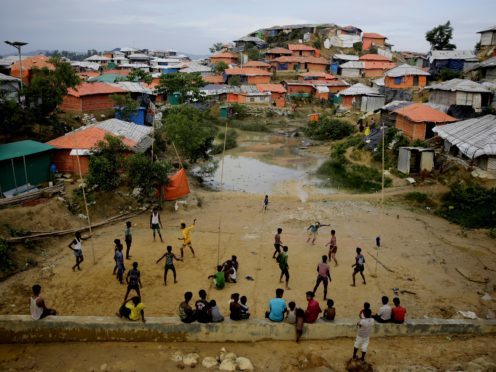Facebook said it is banning Burma’s powerful military chief and 19 other individuals and groups from its site to prevent the spread of hate and misinformation.
The social media giant was heavily criticised for permitting itself to be used to inflame ethnic and religious conflict in the country, particularly against minority Rohingya Muslims.
The firm has been accused of being lax in fighting online misinformation and manipulation in many countries, but Burma is one location where it has been most closely tied to deadly violence.

Some 700,000 Rohingya have fled from Burma’s western state of Rakhine over the past year in response to a brutal counterinsurgency campaign by the military, which has been accused of massive human rights violations.
Critics have accused the military of carrying out ethnic cleansing, or even genocide. This allegation is denied by the government, which claims it was responding to attacks on security forces.
Facebook said it has also targeted pages and accounts that pretended to provide independent news and opinion, while covertly promoting messages of Burma’s military. It said it will delete 18 Facebook accounts, one Instagram account and 52 Facebook pages – including material linked to military commander, Senior General Min Aung Hlaing.
We've added a sample of posts we found, along with some thoughts on how we decide when to take action against cyber threats. https://t.co/dUsH8SVKEI
— Facebook (@facebook) August 22, 2018
A separate report by investigators working for the UN’s top human rights body charged that “Facebook has been a useful instrument for those seeking to spread hate, in a context where for most users Facebook is the internet”.
The report by the the Fact-Finding Mission on Myanmar (Burma), authorised by the UN Human Rights Council, added: “Although improved in recent months, Facebook’s response has been slow and ineffective.
“The extent to which Facebook posts and messages have led to real-world discrimination and violence must be independently and thoroughly examined.”

Four high-ranking officers and two military units targeted by Facebook were also put on a US government blacklist earlier this month for human rights abuses.
The sanctions block any property they own within the US and prohibit US citizens from engaging in transactions with them. The US already maintains restrictions on visas, arms sales and assistance to Burma’s military.
In June, the EU imposed similar sanctions on seven senior army and police officers, all of whom are on Facebook’s blacklist.
Six officers on Facebook’s list were also named in the UN human rights report, which said Burma’s top leaders should be prosecuted for genocide.

Those it recommended as “priority subjects for investigation and prosecution” included the top commander, Senior General Min Aung Hlaing.
In a statement, Facebook referred to the UN report, which it said “found evidence that many of these individuals and organisations committed or enabled serious human rights abuses in the country”.
It added: “We want to prevent them from using our service to further inflame ethnic and religious tensions.”
Facebook has been under pressure for several months to take action on the problem, especially after civic and rights groups said in April that it had failed to adequately act against online hate speech that incited violence against the country’s Muslim minorities, neglecting to effectively enforce its own rules.
